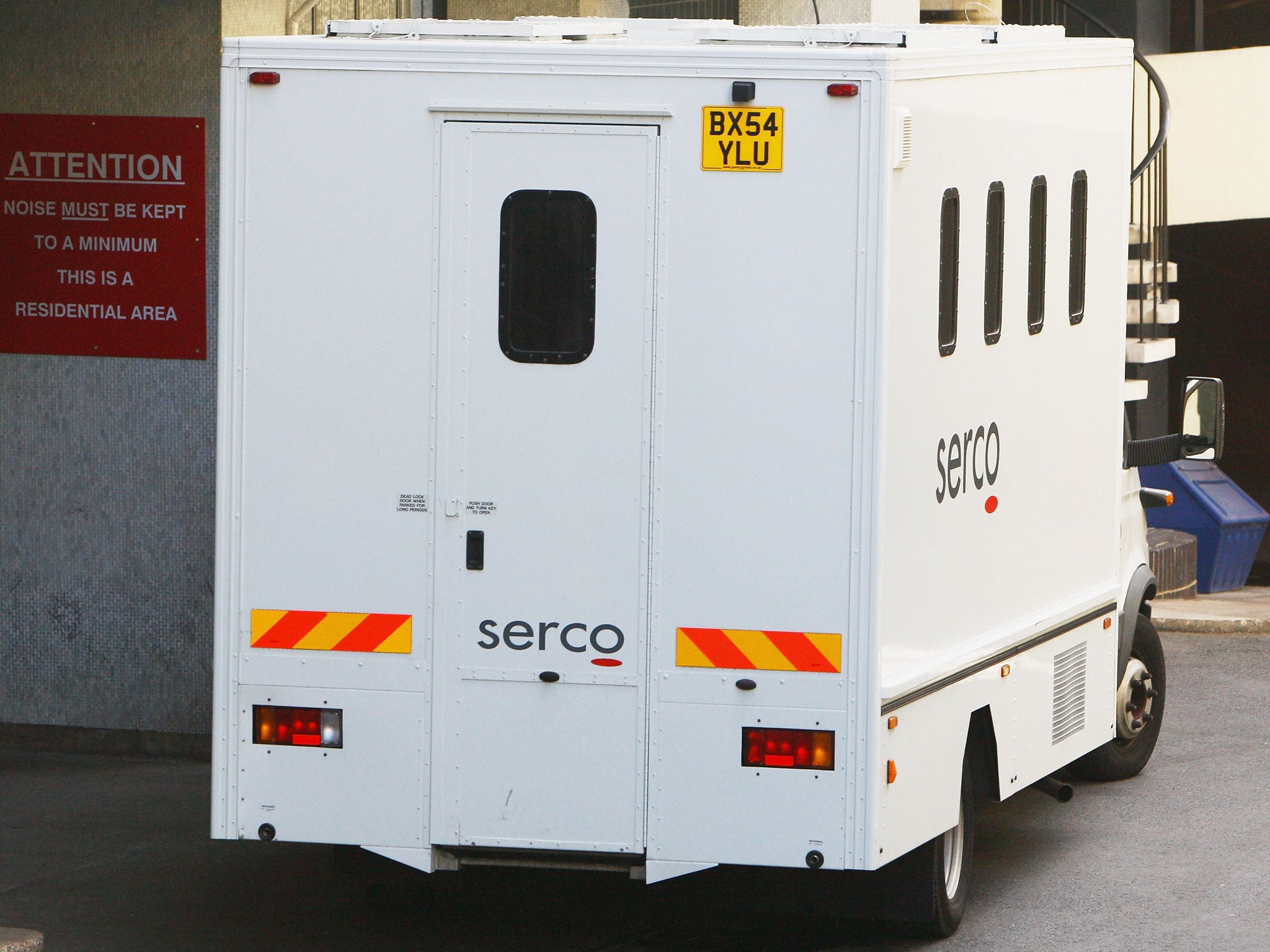Exclusive: No privatised lie detector tests for sex offenders following outsourcing scandals involving G4S and Serco
Decision to scrap outsourcing of controversial polygraph tests is latest blow to Government's privatisation plans following scandals involving G4S and Serco

The Government has abandoned plans to allow the private sector to run lie detector tests for hundreds of serious sex offenders, amid continuing turmoil over outsourcing following scandals involving the country’s two biggest contractors.
The programme to test hundreds of sex offenders was due to start this month but has now been delayed for staff to be trained internally, in the latest blow to privatisation plans for monitoring former offenders in the community.
The compulsory tests for about 750 released serious sex offenders in England and Wales are part of a major planned expansion of the use of the polygraph this year despite concerns over its effectiveness.
Two police forces are set to introduce voluntary testing for people arrested for allegedly downloading child abuse images to examine the potential danger they pose and to identify other victims.
The private sector conducted pilot studies of more than 300 ex-inmates in the Midlands - resulting in 22 being returned to prison because of disclosures they made after using the polygraph. However, the use of private companies to carry out the full programme has been now been ruled out.
It follows last month’s decision to strip G4S and Serco of contracts to monitor tagged offenders, amid allegations that they overcharged the government millions of pounds. The case is being investigated by the Serious Fraud Office.
The two companies, which the Government has relied upon for the vast bulk of its private contracts, are not expected to bid for the specialist polygraph contract. Yet other firms have also been told they can only bid to train and monitor probation staff, and not to run the polygraph programme.
Sadiq Khan, the shadow justice secretary, said: “This decision is a humiliating admission that the Ministry of Justice is not able to get value for money and good service from the private sector.
“The fact that the Ministry of Justice has decided not to give the contract for lie detectors to the likes of G4S and Serco is very embarrassing for Chris Grayling. We now need him and the Ministry of Justice to eat a bit more humble pie and stop the dangerous privatisation of probation which is taking huge risks with public safety with no evidence that it will work.”
Insiders believe the programme could be delayed for about nine months before the first testing takes place, though the Ministry of Justice said it expected only a short delay for training.
“We considered options in light of investigations into G4S and Serco,” said a spokesman. “People will speculate as to their involvement but a competition was never under away.”
Labour is considering banning contractors such as Serco and G4S from winning further tenders if the party wins the next general election, the Independent reported last month. The two companies are barred from entering a planned £500m-a-year contract for probation services as lead bidders.
The Government claims the contracts could save taxpayers up to £200m a year with all but the most serious offenders under the supervision of the private sector.
A G4S spokeswoman said: “It's not our practice to comment on tenders for reasons of commercial confidentiality. We cannot comment on why the Ministry of Justice may have delayed this exercise, as that is clearly a matter for them.”
Serco said: “We have no plans to bid for this contract.”
The use of the polygraph is set to expand rapidly within the criminal justice system. Some experts believe it can be used to expose many more offences committed by individual sex offenders, who may have a greater incentive than some other criminals to cover up crimes that spark public revulsion.
The polygraph – widely used in the US - measures breathing, heart rates and sweating in response to questioning which would suggest if the subject has been lying.
Despite conditional backing from the NSPCC, concerns over its accuracy mean the results of any tests cannot be used as evidence in criminal trials.
Police officers in South Yorkshire will use it to assess the offenders on bail or probation and target their investigations after training in Texas. It followed test studies by Hertfordshire police, which is also considering its wider use.
Under the Hertfordshire pilot, suspects arrested for downloading child abuse images were offered voluntary polygraph testing in return for fast-tracking their cases.
Of more than 30 low-risk suspects who took the test, only eight remained in that category afterwards with three men disclosing they had offended in the past. Concerns were raised about others that triggered further investigations, said Don Grubin, professor of Forensic Psychiatry at Newcastle University who oversaw the tests.
Justice Minister Jeremy Wright said: “Introducing lie detector tests for high-risk sex offenders, coupled with satellite tagging to track their movements, will give us one of the world’s toughest approaches to managing this group in the community.”
